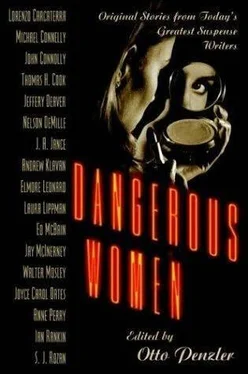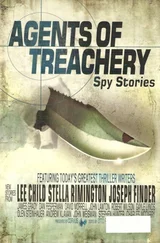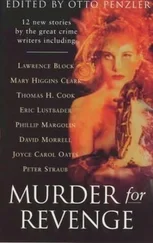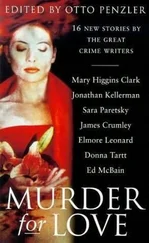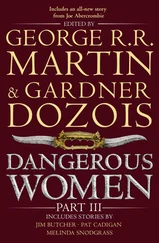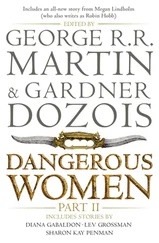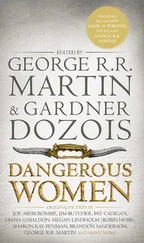
Otto Penzler, Ed McBain, Michael Connelly, Joyce Carol Oates, Walter Mosley, Laura Lippman, Nelson Demille, Thomas H. Cook, Andrew Klavan, John Connolly, Lorenzo Carcaterra, J. A. Jance, Ian Rankin, Jay McInerney, S. J. Rozan, Anne Perry, Elmore Leonard, Jeffery Deaver
Dangerous Women
What makes a woman dangerous? No doubt there are any number of opinions, depending upon the experience of the man or woman who responds.
Personally, I think the most dangerous women are those who are irresistible. Each of us may have a unique weakness, an Achilles’ heel that is unfathomable to others, or we may share universal sensibilities that everyone understands. It may be a woman’s great beauty that wins our hearts, or her charm, or intelligence. It may be the way she brushes her hair back from her eyes, or the way she laughs, or the way she sneezes.
She may be acutely aware of her power, or utterly innocent of it. One will use it as a steel-edged weapon, another as a fuzzy security blanket. The intent neither increases nor diminishes the power, and that is the terrible danger to those who may be in thrall to it.
Power is dangerous. We may know it, even fear it, but if we want the heat from that flame, we will risk everything to get as close to it as possible.
Dangerous women have always been with us. Remember Delilah? Authors have understood the ferocious attraction of dangerous women and used them as literary devices relentlessly. Most of the great women of history, as well as most significant female literary figures, have been dangerous. Perhaps not to everyone, but frequently to those who have fallen in love with them. Men have killed for dangerous women, betrayed their countries, their loved ones and themselves, given up thrones and committed suicide. Sometimes the dangerous women may even be worth it-worth risking everything and giving up all one holds dear.
Many literary detectives have been aware of the dangerous woman. Sam Spade fell for one, Brigid O’Shaughnessy, while PhilipMarlowe and Lew Archer are often chased by them; they have been known to allow themselves to be caught.
Sherlock Holmes, although he allowed himself to be enamored of Irene Adler (“the daintiest thing under a bonnet on this planet”), had a famously powerful aversion to most members of the opposite sex. “Women are never to be entirely trusted-not the best of them,” Holmes stated in The Sign of the Four. “I assure you that the most winning woman I ever knew was hanged for poisoning three little children for their insurance money.”
Although Archie Goodwin loves women, his boss, Nero Wolfe, generally speaks and behaves like a misogynist. “You can depend on women for anything except constancy,” he said. Further, while in a particularly foul mood, he declared, “The vocations for which they [are] best adapted are chicanery, sophistry, self-advertisement, cajolery, mystification and incubation.”
And neither Holmes nor Wolfe ever met the dangerous women on these pages. They would have been shocked and appalled. But, as I predict you, too, will be, they would have been fascinated. They would have been helpless in their desire to know what they were up to, where they would lead, what adorable little tricks they had up their sleeves.
It is clear from the enduring success of Hammett, Chandler, Macdonald, Doyle and Rex Stout that they understood much, including the appeal, of a kind, of dangerous women. The authors in this book have proven to be no less accomplished in providing an array of femmes fatale to delight you- and cause you to shudder in relief that they are not women who matter in your life. At least, for your sake, it is to be hoped that they don’t.
Lorenzo Carcaterra is the author of six books, including the controversial Sleepers, which became a New York Times number one best seller both in hardcover and paperback, as well as a major motion picture starring Brad Pitt, Robert DeNiro, Dustin Hoffman, Kevin Bacon and Minnie Driver. He is currently a writer and producer for the NBC series Law and Order.
After a successful career as a journalist, Michael Connelly turned to fiction writing and produced The Black Echo, which introduced his LAPD detective Hieronymous Bosch and won an Edgar Allan Poe Award from the Mystery Writers of America. He followed this with three more Bosch novels, Black Ice, The Concrete Blonde and The Last Coyote, then wrote a standalone thriller, The Poet. As one of the world’s most beloved authors, his books have become automatic best sellers in many countries.
The young Irish writer John Connolly has worked as a bartender, a local government official, a waiter, a dogsbody at Harrods department store and a journalist. The former policeman Charlie Parker was introduced in 1999 in Every Dead Thing, and followed in Dark Hollow, The Killing Kind and The White Road. Connolly’s most recent novel, Bad Men, is a stand-alone thriller. No writer working today better combines the detective novel with elements of the supernatural.
When the Mystery Writers of America gave Thomas H. Cook the Edgar Allan Poe Award for The Chatham School Affair in 1997, it was an overdue honor for one of America ’s finest crime writers. He had been previously nominated for Edgars in two other categories, Best First Novel and Best Fact Crime, and had won the Herodotus Award for Best Historical Short Story of the Year for “Fatherhood.”
Jeffery Deaver was working as a journalist when he decided to go to law school so that he could become a legal writer. Instead, he practiced law for several years and, while taking long commutes, began writing suspense fiction with extraordinary success. He has been nominated for four Edgars and won the Ellery Queen Reader’s Award for best short story of the year three times. His Lincoln Rhyme novels are staples on the bestseller lists; The Bone Collector was filmed with Denzel Washington as the paralyzed former forensic officer and Angelina Jolie as the young cop who helps bring a serial killer to justice.
Few writers sell as many books as Nelson DeMille, whose blockbuster thrillers have sold more than 30 million copies worldwide. Notable for their impeccable plotting and distinguished literary style, his best sellers include The Lion’s Game, Plum Island, Spencerville, Gold Coast, Word of Honor and The General’s Daughter, a pure detective novel successfully filmed starring John Travolta, with a screenplay by William Goldman. “Rendezvous” is his first short story in twenty-five years.
J. A. Jance did not have an easy time becoming a best-selling author. She was denied entry to a creative writing program because the professor thought women should be teachers or nurses, and her alcoholic husband agreed. After her divorce and his death at the age of forty-two from acute alcohol poisoning, she wrote from 4:00 to 7:00 a.m. before sending her kids off to school. Her series about Detective J. P. Beaumont began modestly as paperback originals but now are regulars on bestseller lists.
Writing as Andrew Klavan and using the pseudonym Keith Peterson, the author has won two Edgars but has somehow failed to make the best-seller list, though he has had great success in Hollywood. Clint Eastwood directed and starred in True Crime, about a journalist trying to save an innocent man; it also featured Isaiah Washington, James Woods, Denis Leary and Lisa Gay Hamilton. Two years later, Michael Douglas and Famke Janssen starred in another film based on a Klavan novel, Don’t Say a Word.
Читать дальше
